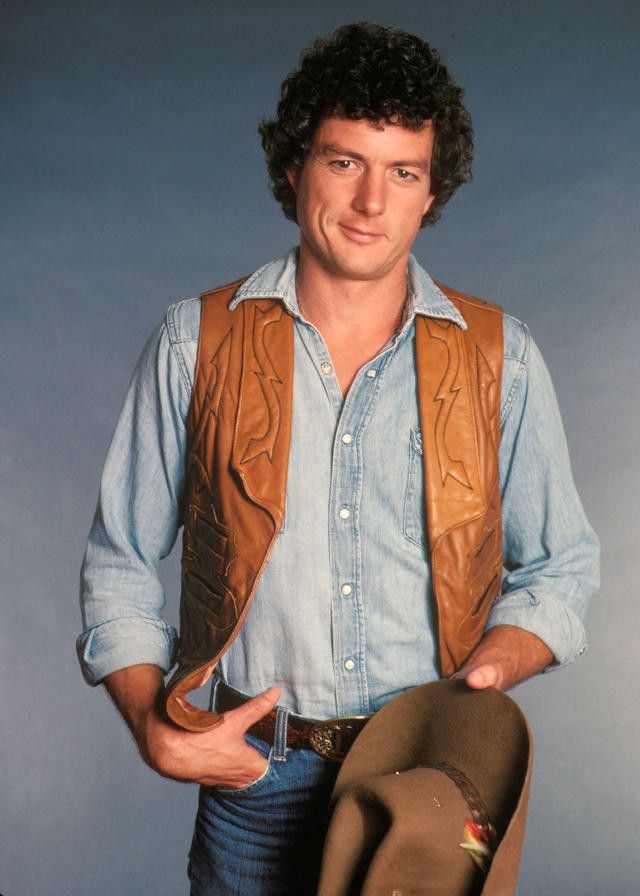
A Road‑Song to Youth and Radio: “The Wolfman of Del Rio” by Terry Allen
When you listen to “The Wolfman of Del Rio”, you ride down a moonlit highway, the radio blasting, haunted by a voice you never quite saw — a wild howl from the border that shaped a generation’s dreams.
Terry Allen released this song as part of his seminal double album Lubbock (On Everything), which originally came out in 1979. The album, full of vivid portraits of West Texas life, became a cornerstone of what would later be called alt‑country, though at the time it existed somewhat sideways to mainstream charts — more a cult classic than a commercial smash. While “The Wolfman of Del Rio” was not a single that climbed the Billboard charts, its emotional weight and narrative richness made it one of the most beloved tracks among those who knew Allen’s work deeply.
The Story Behind the Song
In an interview, Terry Allen described The Wolfman of Del Rio as rooted in his teenage memories of driving through West Texas with friends, tuning the car radio late at night to a powerful Mexican border station. That “mystery voice” they heard came from Wolfman Jack, broadcasting out of XERF in Del Rio — booming, howling, and spinning rock & roll, R&B, and wild, otherworldly soundscapes. For young Allen, this radio voice was both guide and companion: “that sense of hurtling through great … empty space … late at night … driving … and listening to ‘The Wolfman’ … turned up as loud as it would go” was, he said, where “every freedom I most value … first began.”
Allen often says that the first vivid memory for many growing up in his part of Texas was getting their first car — because before that, there really wasn’t a strong memory of themselves as part of something bigger. The car became more than a machine; it was a vessel of youth, escape, and connection — and the radio was its heartbeat.
Themes and Meaning
At its heart, “The Wolfman of Del Rio” is a road song, but not just about roads: about freedom, identity, and the strange alchemy of radio and memory. The two young characters in the lyrics — a boy in a ’53 Chevrolet and a girl in a ’61 V‑8 Ford — both “took their first release” under different kinds of pressure, and both escape, in their way, by driving fast and listening to that wolfish voice.
As the song unfolds, their stories converge: they “circle one another / armed with the lives from their past,” fighting, talking, longing, and tracing the outlines of something they cannot quite recapture. Allen’s songwriting here is deeply nostalgic, but also slightly haunted: there is an echo of a “disease of the dreams” that spreads around — a dream so powerful that it wounds as much as it frees.
Musically, the song transitions in its second half, shifting chord patterns and mood. Critics have noted that this change in harmony mirrors the growth, disillusionment, and transformation of its characters. There is even a coda that sounds like a completely different song, but Allen has said that he only later realized how they fit as a single piece — like two halves of a memory stitched together.
The Bigger Picture: Album & Legacy
Lubbock (On Everything) is not just an album — it is a memory map of Allen’s West Texas world. On this double LP, Allen weaves together characters, landscapes, humor, and heartbreak: from Amarillo Highway to Truckload of Art, from The Girl Who Danced Oklahoma to Flatland Farmer. “The Wolfman of Del Rio” stands out as one of its most ambitious and emotionally resonant songs.
Allen’s work on this album is deeply collaborative: he recorded with Lloyd Maines, Don Caldwell, and other musicians who brought strings, pedal steel, accordion, and more, giving the album a rich, textured sound. Over time, this record grew in stature: though it wasn’t a mainstream hit, it became foundational for generations of songwriters and listeners who felt that same pull of place, memory, and the open road.
Why It Still Resonates
Even for listeners who never grew up in West Texas, “The Wolfman of Del Rio” taps into a universal longing. It’s about youthful escape, the power of a distant radio voice, and the way music can open a portal to somewhere you don’t quite belong but desperately want to reach.
For older listeners, especially, the song may evoke the kind of late-night drives they once took — the hum of the engine, the crackle of AM radio, the thrill of the unknown. The howl of Wolfman Jack becomes a metaphor not only for freedom but for the strange, wavering connection between the self and something larger: dreams, voices, radio, memory.
Even now, decades later, the song reminds us of a time when a powerful DJ on a border station could feel like a spiritual companion. When you hit the highway in the dark, turn the dial until the signal clears — and suddenly you’re not alone. That feeling, that alchemy of motion and sound, is what Terry Allen captured in those words and chords. And for many, it’s a memory that howls softly, long after the car has stopped.